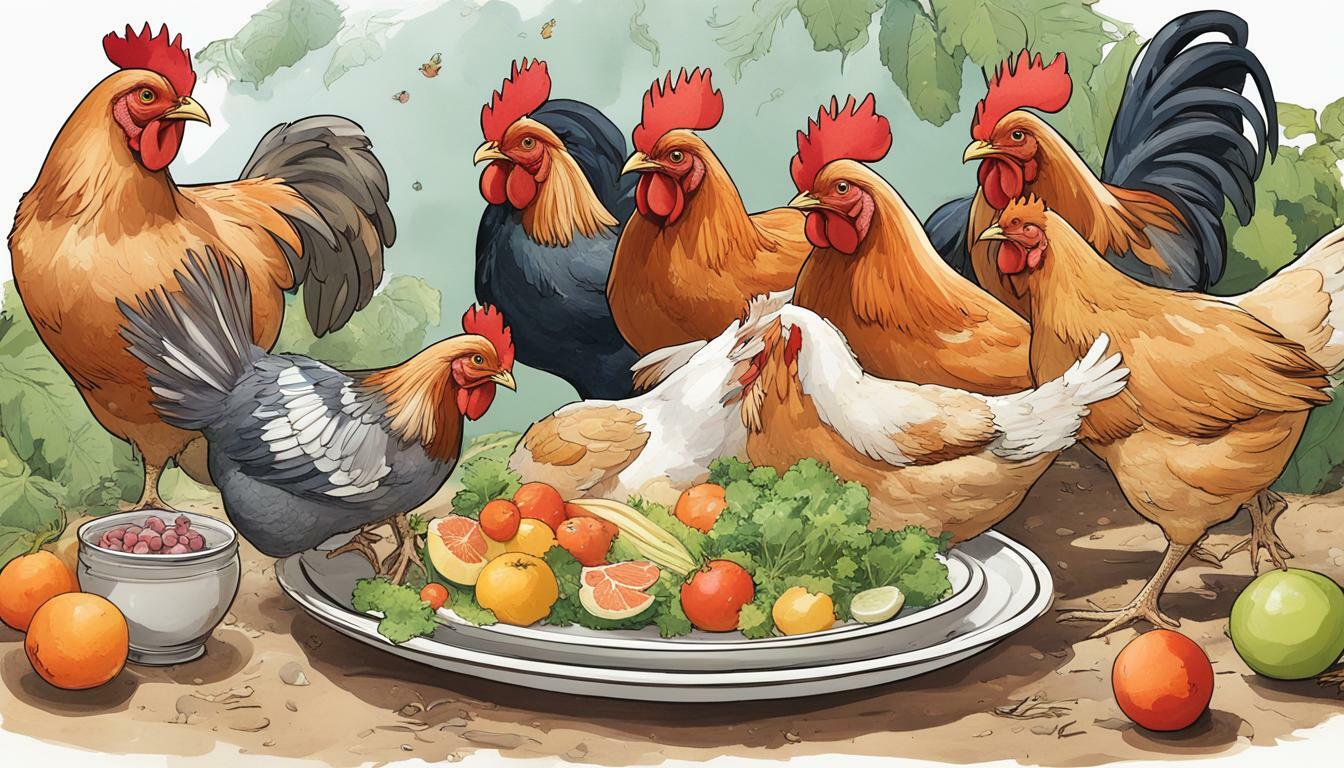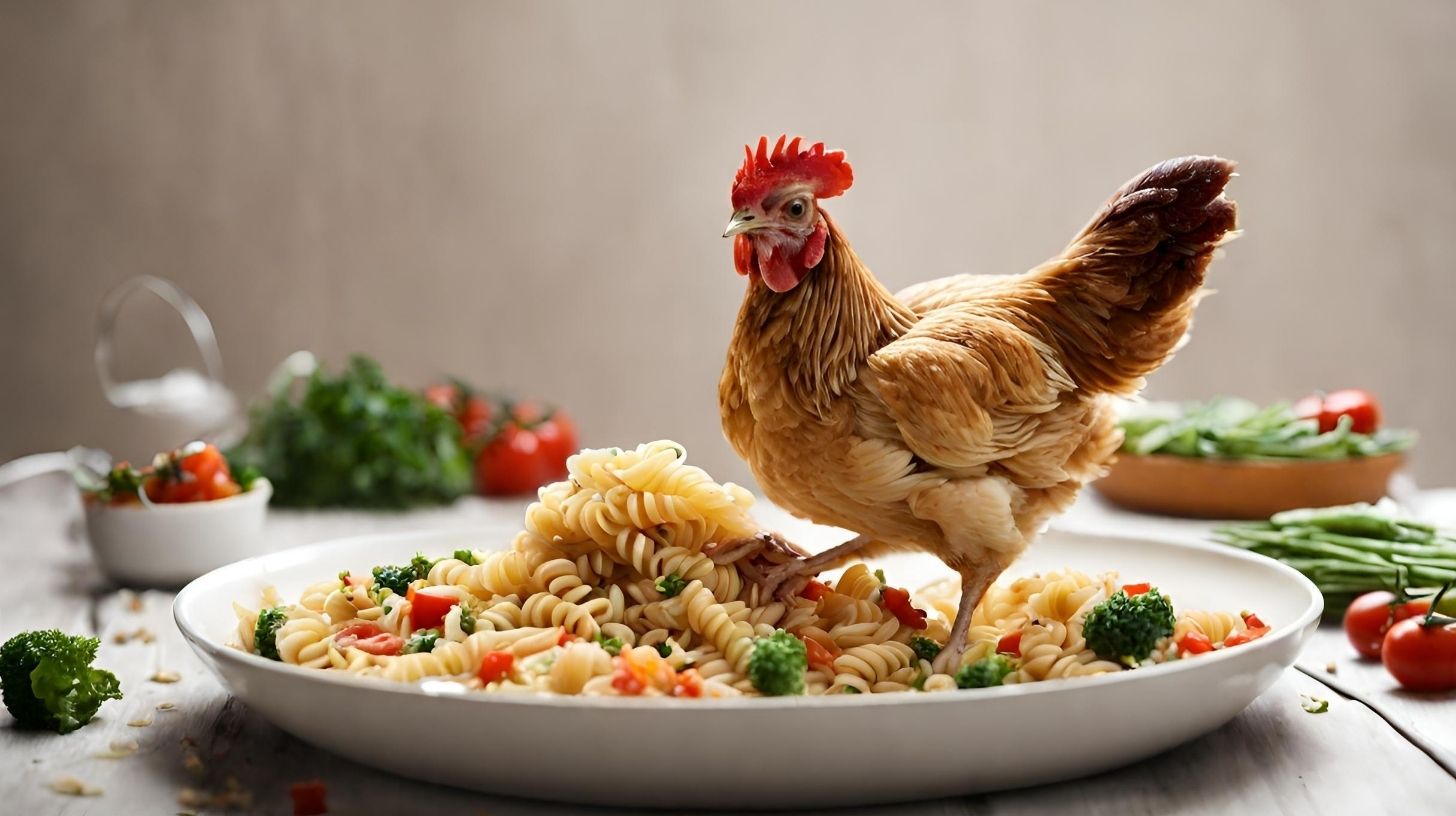Can Chickens Eat Pumpkin Seeds?
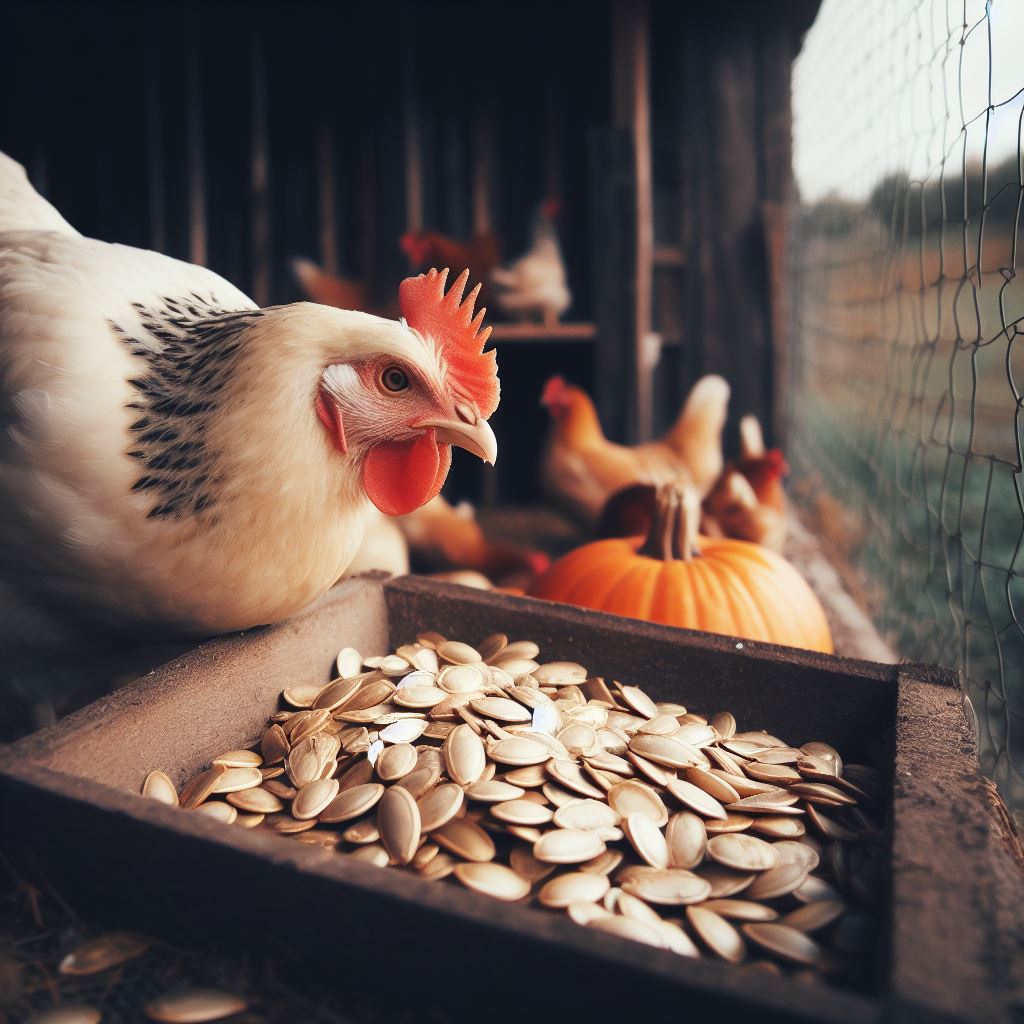
Table of content:
- Nutritional Benefits of Pumpkin Seeds for Chickens
- Are Pumpkin Seeds Safe for Chickens to Eat?
- Feeding Guidelines for Pumpkin Seeds
- Step-by-Step Guide to Feeding Pumpkin Seeds
- Health Benefits of Pumpkin Seeds for Chickens
- Potential Risks of Too Many Pumpkin Seeds
- Signs of Overfeeding Pumpkin Seeds
- Alternatives to Pumpkin Seeds for Chickens
- Frequently Asked Questions
- Conclusion
Yes, In moderation, pumpkin seeds are a great occasional treat for chickens. They provide extra protein, omega-3 fatty acids, and other nutrients chickens need in their diet.
Pumpkin seeds are a nutritious treat that can be fed to chickens in moderation. As with any new food, it’s important to introduce pumpkin seeds slowly to avoid digestive upset. This article will cover everything chicken owners need to know about feeding pumpkin seeds to their flock.
Nutritional Benefits of Pumpkin Seeds for Chickens
Pumpkin seeds, also known as pepitas, are the edible seeds found in pumpkins and other squash. They are highly nutritious, containing protein, healthy fats, fiber, minerals, and antioxidants.
Here are some of the key nutrients pumpkin seeds provide:
- Protein: Pumpkin seeds contain amino acids for building and maintaining muscle. Protein is crucial for egg laying hens.
- Healthy Fats: The fats in pumpkin seeds contain omega-3 and omega-6 fatty acids. These support skin and feather health.
- Fiber: Pumpkin seeds have insoluble fiber that promotes digestive health.
- Vitamin K: This vitamin is needed for blood clotting and bone health. A deficiency can cause bleeding issues.
- Iron: Important for producing red blood cells that transport oxygen. Anemia can result from iron deficiency.
- Zinc: Supports immune function and wound healing. Zinc deficiency can make chickens more prone to illness.
- Magnesium: Needed for over 300 enzyme reactions in the body including energy metabolism.
- Antioxidants: Pumpkin seeds contain carotenoids, phenolic acids, and other antioxidants. These combat cell damage from free radicals.
By providing many essential vitamins, minerals, fats, and protein, pumpkin seeds can fill gaps that may exist in a chicken’s diet. This helps optimize their health.
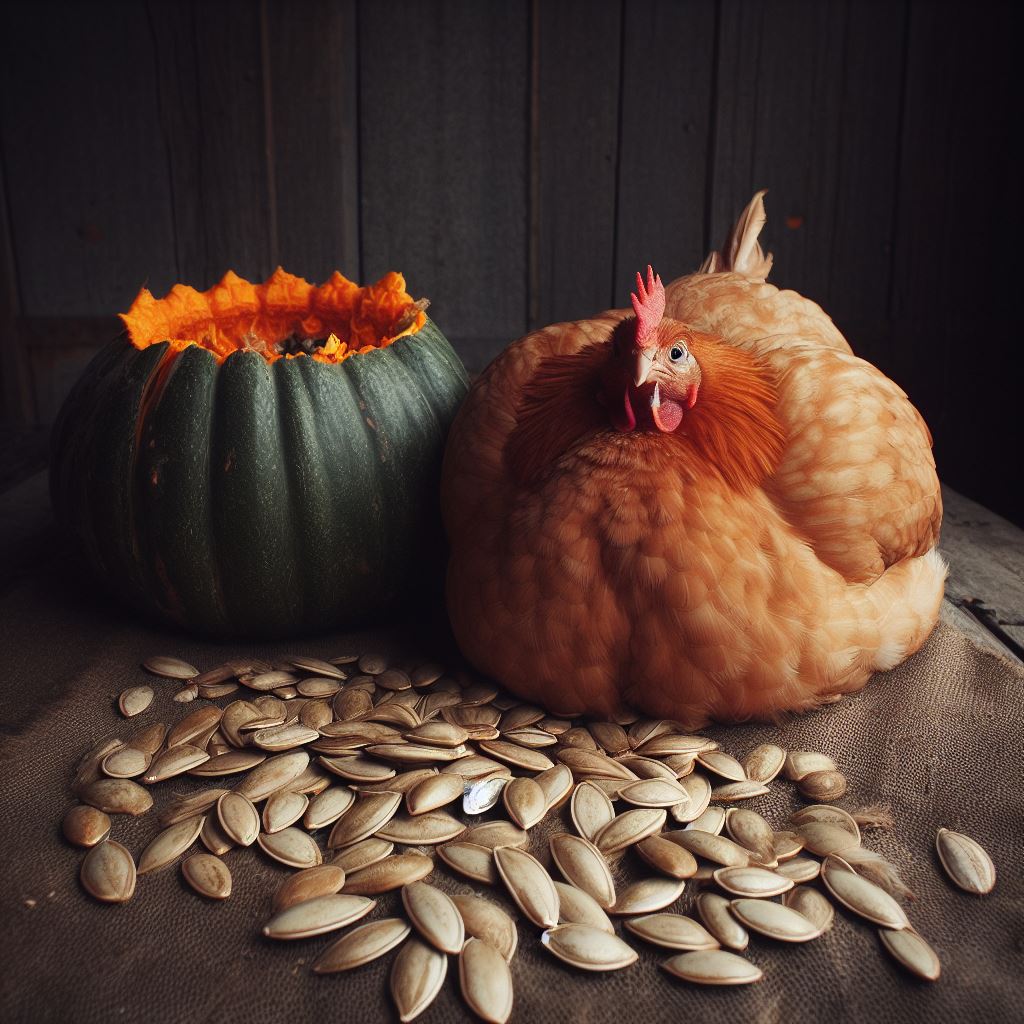 Are Pumpkin Seeds Safe for Chickens to Eat?
Are Pumpkin Seeds Safe for Chickens to Eat?
Pumpkin seeds are safe for chickens in moderation. Most chickens enjoy them as an occasional treat.
However, there are a few precautions to keep in mind:
- High in fat: Too many high-fat foods like pumpkin seeds could lead to obesity and liver problems in chickens. They should not make up more than 10% of the overall diet.
- May cause loose droppings: The high fat and fiber content may irritate the digestive tract initially. Start with small amounts and discontinue use if diarrhea occurs.
- Risk of moldy seeds: Dried pumpkin seeds can grow mold without proper storage. Discard any old, shriveled or discolored seeds.
- May interfere with protein absorption: The phytates in seeds can reduce protein absorption temporarily until the gut adapts.
- Allergic reactions: While rare, some chickens may be allergic. Monitor for signs like facial swelling, respiratory distress, or lethargy.
As long as pumpkin seeds are given in moderation and introduced slowly, most chickens can enjoy them safely. Monitor your flock for any adverse reactions.
Feeding Guidelines for Pumpkin Seeds
Follow these tips for safely incorporating pumpkin seeds into your chickens’ diet:
- Give only occasionally: 1-2 times per week maximum as a treat. Do not replace regular feed.
- Small portions: Start with 1-2 seeds per chicken. Gradually increase to up to 15 seeds per bird if well-tolerated.
- Chop or crush: Whole seeds may be difficult for chickens to digest. Consider grinding or chopping for younger or smaller breeds.
- Mix with feed: Mix in with crumbles or scratches to encourage foraging and prevent overeating.
- Avoid moldy seeds: Discard any old, spoiled seeds. Only feed fresh, dry seeds.
- Store properly: Keep pumpkin seeds in an airtight container in a cool, dry place. Refrigeration extends shelf life.
- Remove from feeders: Pumpkin seeds can go rancid quickly at room temperature. Remove uneaten portions within a few hours.
Following these tips will allow you to safely provide pumpkin seeds as a supplemental treat. Monitor your flock as they adjust to identify optimal portion sizes.
Step-by-Step Guide to Feeding Pumpkin Seeds
Here is a step-by-step guide for introducing and feeding pumpkin seeds:
1. Select and Prepare Seeds
- Buy raw, unsalted pumpkin seeds, or scoop seeds from a fresh pumpkin.
- Rinse and pat dry seeds. Allow to air dry thoroughly.
- Spread seeds in a single layer on a baking sheet.
- Roast at 300°F for 20-30 minutes until lightly browned and crispy.
2. Introduce Seeds Gradually
- Start with just 1-2 seeds per chicken the first time.
- Slowly increase to 5-10 seeds over the course of a week.
- Look for signs of digestive upset like loose droppings. Decrease portions if issues arise.
3. Mix with Feed
- For adult chickens, combine 1 tablespoon of seeds per bird with crumbles or scratch.
- For chicks, add 1 teaspoon of finely crushed seeds per chick into feed.
4. Feed in Small Portions
- Feed pumpkin seed mix a few times per week.
- Remove any uneaten seeds within a few hours to prevent spoilage.
- Adjust portions based on your flock’s appetite and reaction.
5. Store Seeds Properly
- Keep roasted seeds in an airtight container in the refrigerator.
- Discard any excess after 2-3 days. Fresh seeds are more palatable.
Following these steps will allow you to safely integrate pumpkin seeds into your flock’s diet. Adjust amounts and frequency based on their preferences.
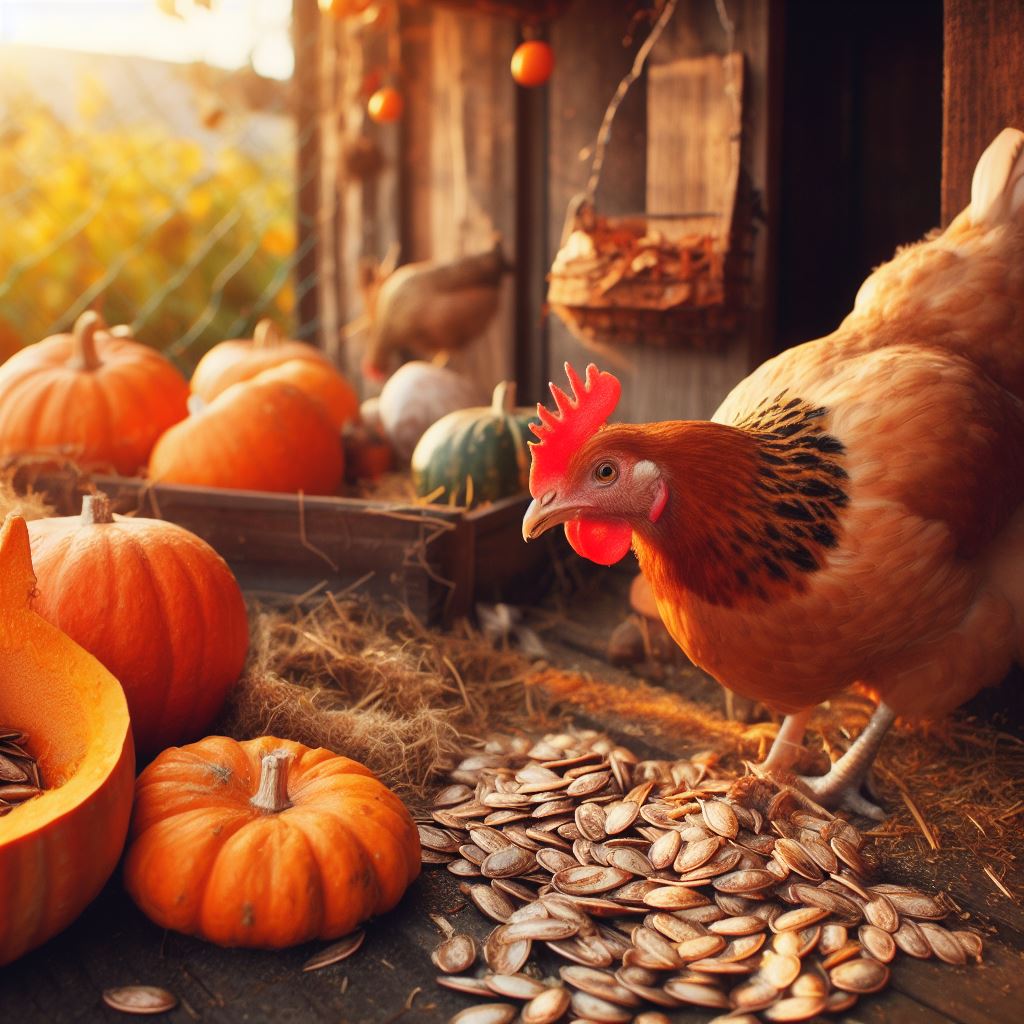 Health Benefits of Pumpkin Seeds for Chickens
Health Benefits of Pumpkin Seeds for Chickens
Incorporating pumpkin seeds offers many benefits that support chickens’ health:
- Shiny feathers: The zinc promotes healthy feather growth and sheen.
- Strong eggshells: The zinc, vitamin K, and magnesium support eggshell quality so shells don’t crack easily.
- Immune support: Pumpkin seeds provide zinc, antioxidants, and protein to keep chickens’ immune systems strong.
- Digestive health: The fiber and healthy fats promote good gut bacteria and intestinal function.
- Alertness and energy: Magnesium, iron, and antioxidants help prevent fatigue and keep chickens active.
- Joint health: Vitamin K, antioxidants, and omega-3s support bone and joint integrity as chickens age.
- Heart health: The omega-3 fatty acids support cardiovascular function and blood flow.
The nutrients in pumpkin seeds target many aspects of overall wellness for chickens. Owners may notice improvements in feathering, energy levels, and egg quality when fed occasionally.
Potential Risks of Too Many Pumpkin Seeds
While nutritious in moderation, too many pumpkin seeds could lead to some adverse effects:
- Obesity: The high fat content could lead to excessive weight gain if overfed. Chickens should not become overweight.
- Fatty liver disease: Excess dietary fat is hard on the liver. Liver function issues can develop over time.
- Digestive upset: Diarrhea or loose droppings may occur if chickens eat too many seeds. Fiber modulates intestinal transit.
- Reduced protein absorption: The anti-nutrients in seeds can temporarily impact protein digestion and absorption.
- Nutritional imbalances: Overfeeding treats while reducing nutritionally balanced feed can lead to deficiencies over time.
- Decreased appetite: Chickens may fill up on seeds rather than eating a complete feed.
To avoid these risks, pumpkin seeds should be limited to occasional treats. They should never replace balanced feed as a primary food source.
Signs of Overfeeding Pumpkin Seeds
Monitor your flock for these signs that may indicate you are feeding too many pumpkin seeds:
- Increased body weight or obesity
- Loose, watery droppings
- Lack of interest in regular feed
- Decreased egg production
- Soft-shelled or malformed eggs
- Feathers appearing dull or brittle
- Visible fat deposits on abdomen or joints
- Signs of respiratory distress
- Swollen face, comb, or wattles
- Lethargy or depression
Discontinue pumpkin seeds immediately if any of these issues arise. The symptoms should resolve as chickens return to a balanced diet. Consult a veterinarian for any respiratory issues or lethargy to rule out illness.
Alternatives to Pumpkin Seeds for Chickens
For chickens that don’t tolerate pumpkin seeds well, there are some alternative treats:
Fruit: Small amounts of chopped apples, pears, watermelon, berries, and citrus. Provides vitamins, minerals, and antioxidants.
Vegetables: Carrots, winter squash, leafy greens, and sweet potatoes offer key nutrients.
Herbs: Oregano, mint, basil, parsley, and cilantro promote digestion and provide phytonutrients.
Sprouted seeds: Sprouted lentils, barley, wheat, and beans are highly digestible sources of protein and fiber.
Yogurt: Plain yogurt contains probiotics that support gut health. Look for no added sugar.
Mealworms: A favorite protein-rich treat. Freeze-dried are safest.
There are many healthy, natural treat options for chickens beyond pumpkin seeds. Tailor choices to your flock’s preferences.
Frequently Asked Questions
How much protein do pumpkin seeds have?
Pumpkin seeds contain about 20-30% protein per 100 grams. This is quite high compared to many other seeds and nuts. They provide a nutritionally dense protein source.
Do you need to cook pumpkin seeds for chickens?
It’s best to roast raw pumpkin seeds to improve digestibility before feeding them to chickens. The heat helps break down the fibrous coat around seeds so chickens can access the nutrients inside.
Can chicks eat pumpkin seeds?
Pumpkin seeds can be fed to chicks over 8 weeks old in small quantities. Make sure seeds are finely crushed. Monitor for loose droppings.
How long do pumpkin seeds last?
Whole roasted pumpkin seeds last 2-3 months stored in an airtight container in the fridge. Shelled seeds may last up to one year frozen. Discard any old, spoiled seeds.
Are pumpkin seeds high in fat?
Yes, pumpkin seeds are very high in fat, with about 50% of calories coming from fat. Most of the fat is from healthy unsaturated fatty acids, but portion sizes for chickens should be limited.
Conclusion
Pumpkin seeds can be a nutritious supplemental treat for chickens in small amounts. They provide protein, omega-3s, antioxidants, minerals, and other key nutrients that support health.
However, moderation is important as too many seeds could lead to weight gain or digestive issues. Introduce seeds gradually and limit treats to 1-2 times per week. Store seeds properly to prevent rancidity.
Discontinue use if any signs of intolerance appear. When fed occasionally and in moderation, pumpkin seeds can be a great way to provide added nutrition and enrich your chickens’ diet.
Welcome. I’m Adreena Shanum, the proud owner of this website, and I am incredibly passionate about animals, especially poultry. I founded adreenapets.com as a labor of love, stemming from my desire to share my knowledge and experiences with poultry enthusiasts worldwide.



